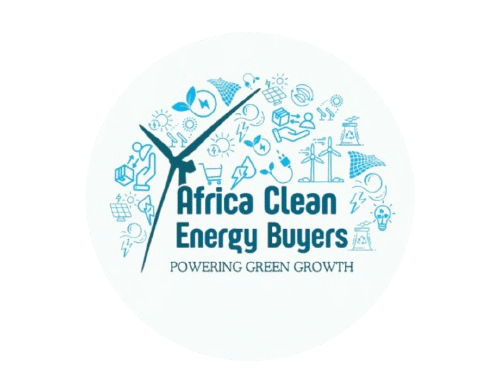The Call
Unlocking Africa’s True Energy Demand: A Call for Connected Action
According to the 2023 RE100 report, 522 companies in Africa have committed to sourcing
100% of their electricity from renewable sources by 2030. Collectively, these companies
currently consume 4084 GWh of electricity annually. Yet, with only 19%—equivalent to
780 GWh—sourced from renewables, the continent is significantly off track to meet this
target within the remaining five-year window.
However, this headline figure only scratches the surface.
Africa’s power sector faces entrenched systemic challenges—ageing infrastructure, rising
demand, inconsistent supply, and mounting payment arrears—that have led many
companies to turn to backup diesel or petrol generators to fill persistent energy gaps. These
generators now supply a staggering 100 TWh (100,000 GWh) of electricity annually across
the continent—25 times more than the current grid-sourced electricity consumed by the
RE100 companies.
This data represents only a fraction of the true picture. It excludes companies not yet
aligned with 100% renewable targets and omits millions of small and medium-sized
enterprises (SMEs) that support African and global supply chains. As such, the true scale of
electricity demand in Africa is vastly underestimated.
The proliferation of diesel and petrol generators across the continent is itself a telling
signal. In Nigeria alone, there are over 70 million small-scale generators powering
everything from households to industrial operations—evidence of widespread, unmet
electricity demand.
Moreover, existing energy access metrics—such as 50–100 kWh per capita per year, which
equates to little more than powering 1.5 light bulbs—are grossly inadequate. They fail to
reflect the needs of a young, digitally connected, and increasingly aspirational population
seeking not just energy for survival, but for productivity, innovation, and economic
growth.
In a continent full of contrasts and paradoxes, vast clean energy potential
remains underutilised. Ambitious renewable projects sit idle or underperform, and regional
power pools—despite their promise—remain underdeveloped and poorly integrated.
Yet, there is hope.
Africa’s regional interconnected grids, if strengthened, could unlock a balanced power
future, aligning abundant renewable resources with the continent’s expanding demand. The
opportunity lies in building markets that are nimbler, more transparent, and responsive to
the needs of both industry and society.
In my previous role as Regional Director of the I Track Foundation advancing the adoption of
one of the many Energy Attribute Certificates (EACs), International Renewable Energy
Certificates (I-RECs), I’ve seen firsthand the disconnects, asymmetries and silos that limit
progress—from policy to finance to project development. These barriers must become
bridges.
This is the purpose of Africa Clean Energy Buyers (ACE Buyers): a platform for
partnership, designed to convene corporates, governments, financiers, and developers, to
overcome fragmentation and accelerate clean energy adoption in line with corporate
2040 and Paris Agreement 2070 targets.
Join Us in This Mission
We invite you to be a part of this transformation—as a:
Partner
Member
Supporter
Together, we can catalyse the regulatory and investment momentum needed to meet Africa’s
true energy demand and power its sustainable future.
